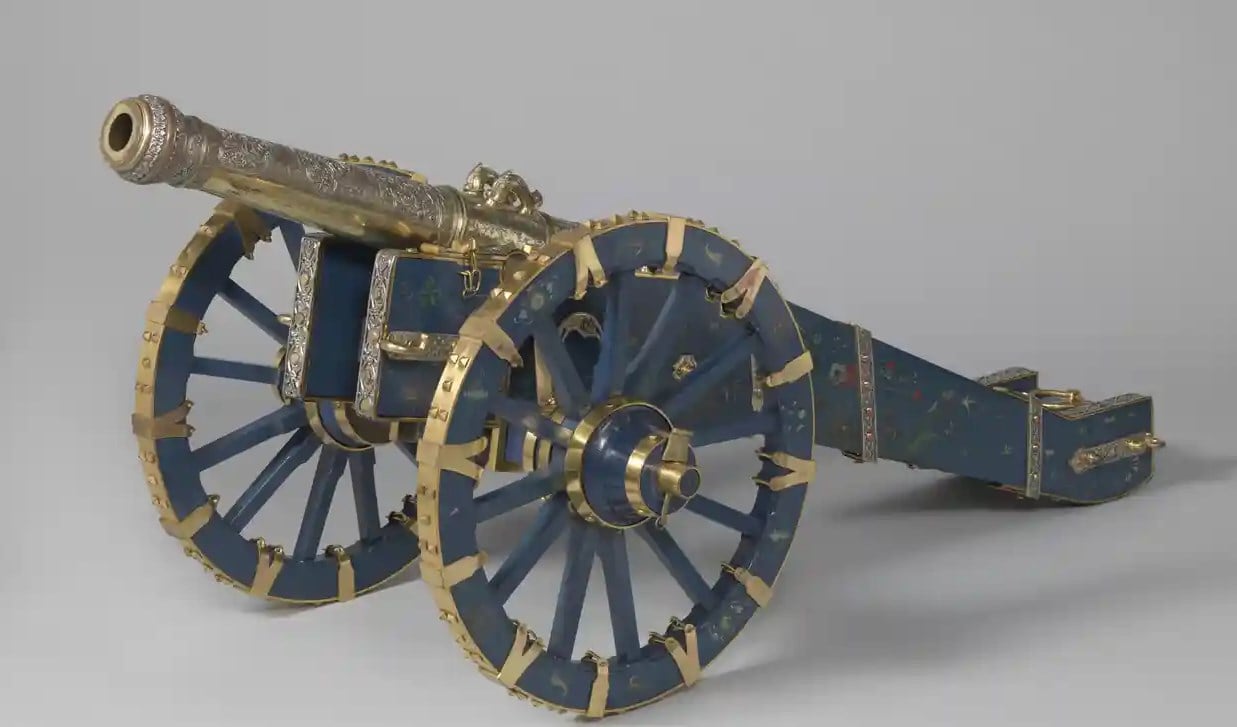Netherlands to repatriate hundreds of looted artifacts to Bali
This is the outcome of a 2020 report by an advisory committee that called on The Netherlands to “unconditionally” return looted cultural artifacts if requested by their countries of origin.
-

The Rijksmuseum is set to return six objects, including a richly decorated bronze-cast gun known as the cannon of Kandy, pictured, to Sri Lanka this year. (Rijksmuseum)
More than 400 artifacts looted from Indonesia and Sri Lanka during the colonial period will be given back by The Netherlands, including the cache of precious stones and gold jewelry stolen by Dutch troops from a royal palace in Bali, known as the “Lombok treasure”.
This is the outcome of a 2020 report by an advisory committee that called on The Netherlands to “unconditionally” return looted cultural artifacts if requested by their countries of origin - in this case, totaling 484 objects.
Gunay Uslu, the Dutch state secretary for culture and media, said, “This is a historic moment", adding: “It’s the first time we’re following recommendations of the committee to give back objects that should never have been brought to the Netherlands.”
Read more: Iraq retrieves looted 2,800-year-old stone tablet from Italy
Four stone statues from the former Javanese Hindu kingdom of Singhasari and a keris dagger from the Klungkung kingdom will be returned, alongside 132 objects of modern art from Bali, known as the Pita Maha collection, which will be restored to Indonesia at the National Museum of Ethnology in Leiden on July 10.
The 'Java Man'
Even though the Indonesian government requested the return of the famous human remains of the “Java Man” in 2022, it is not included in the repatriation.
The remains were the oldest hominid fossil found when the Dutch palaeoanthropologist Eugène Dubois excavated them from Indonesia in 1891 and are now displayed at the Naturalis Biodiversity Center in Leiden.
The remains are considered a landmark discovery in the charting of human evolution.
In the case of the "Java Man", Indonesia believes that Dubois stole the remains in a context of colonial domination, and historians have discovered that Dubois forced laborers to do the digging and some of them died doing so.
Read next: Germany returns two Indigenous masks to Colombia over 100 years later
But the Dutch museum claims that if it weren't for Dubois, the Java Man would not have been discovered and objects from prehistory are not considered as national patrimony.
A Dutch government spokesperson told The Guardian that “nothing has been declined, but some things take longer than others.”
Meanwhile, the six objects bound to be returned to Sri Lanka are a large-caliber bronze-cast gun known as the cannon of Kandy, currently on display at Amsterdam’s Rijksmuseum, and gold and silver ceremonial swords, a Singhalese knife and two guns.

 3 Min Read
3 Min Read








